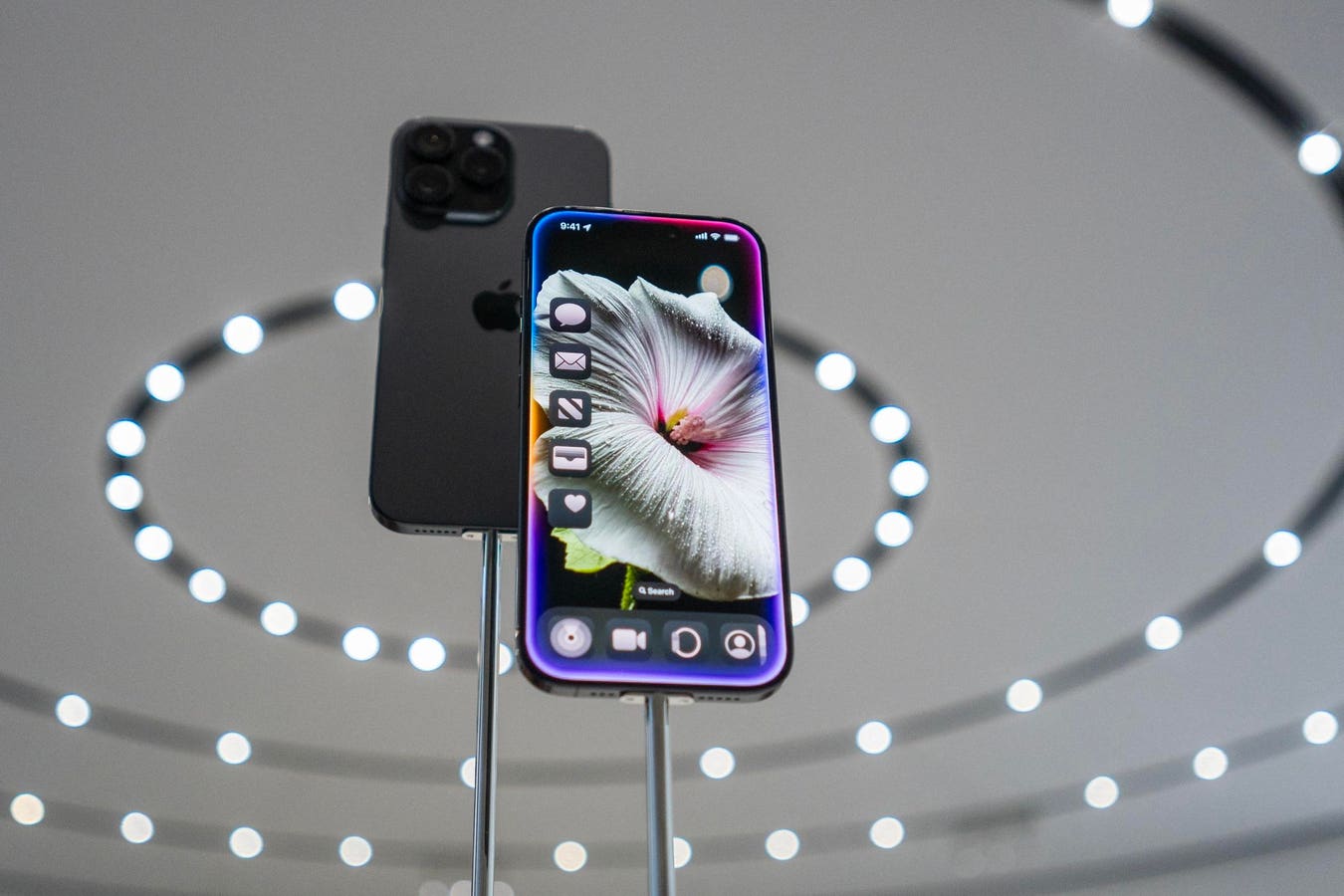Photo by Mike Kemp/In Pictures via Getty Images
If motivation feels harder to access, sex drive has dipped, or attention span is fleeting, dopamine could be the missing piece. Dopamine, often dubbed the “motivation molecule,” is paramount to how we experience pleasure, learn new behaviors and pursue goals.
But in our hyper-digitized world, we may be numbing the very system we rely on to feel engaged, alive and alert. From endless algorithmic feeds to reward-chasing behaviors like texting, swiping and doomscrolling, we are unknowingly participating in what some researchers now call “neural hijacking.”
A 2025 study in Current Biology suggests that the average adult receives more than 300 digital dopamine hits per day, microbursts of pleasure and novelty that, over time, dull the brain’s sensitivity to natural rewards, such as movement, connection, rest and intimacy. The result? A modern epidemic of anhedonia, burnout, sexual apathy and disrupted circadian rhythms, among others.
Behind A Dopamine Reset
The term “dopamine fasting” may sound like a trend, but its roots lie in fundamental neurobiology. The mesolimbic dopamine pathway, particularly the nucleus accumbens and prefrontal cortex, plays a crucial role in reward anticipation, habit formation and emotional resilience. When overstimulated, this circuit becomes desensitized, leading to what Stanford psychiatry professor Dr. Anna Lembke refers to as the “dopamine deficit state.”
“Every time we flood the reward pathway, our brain adapts by downregulating dopamine receptors,” Dr. Lembke writes in her 2021 book Dopamine Nation. “Eventually, we need more stimulation just to feel normal, and the absence of stimulation begins to feel like pain.”
Recent research from the University of Zurich (2024) demonstrated that a five-day reduction in high-dopamine behaviors restored baseline reward sensitivity in participants, who reported:
- A 30% increase in motivation for exercise and sex
- Enhanced enjoyment from non-digital activities like nature walks, music and reading
- Marked improvement in sleep onset and REM cycles
This aligns with findings from the Journal of Psychosomatic Research, which observed that even brief digital abstinence can improve parasympathetic tone, reduce perceived stress and help re-regulate hormonal rhythms, such as cortisol and melatonin.
What A Dopamine Fast Actually Involves
Contrary to popular belief, a dopamine fast is not about eliminating dopamine itself, a neurotransmitter essential for survival, but instead reducing unnatural overstimulation that hijacks the brain’s reward loop.
Dr. Cameron Sepah, the clinical psychologist who popularized the concept in Silicon Valley, defines dopamine fasting as a “behavioral intervention that restricts impulsive reward-seeking behaviors to allow neurochemical rebalancing.” That includes:
- Constant notifications and app-switching
- Mindless consumption of social media, TikTok, reels
- Addictive snack patterns and “digital eating”
- Compulsive online shopping, dating app use or gaming
- Multitasking while working or relaxing
Instead, the reset invites people to reconnect with low-dopamine, high-meaning experiences, such as creativity, genuine human connection, nature, stillness and analog pleasures. The result? A more finely tuned nervous system, better boundaries and a return to self-led desire.
Why Sex Drive, Sleep And Focus Improve
When digital stimulation is reduced, profound shifts often occur across mind-body systems. That’s because dopamine doesn’t operate in isolation. It modulates other neurohormones that influence everything from libido to cognition. Here’s how:
- Sleep: Excessive screen use suppresses melatonin, delays sleep onset, and increases nighttime cortisol. A 2025 study from UC Berkeley found that participants who reduced screen exposure by 90 minutes before bed saw a 40% improvement in deep sleep latency within 3 days.
- Sex drive: Dopamine regulates testosterone and estradiol, two hormones crucial for libido in both men and women. A desensitized reward circuit can dull sexual curiosity. Recalibrating the brain’s pleasure pathways enables desire to return organically, as observed by the Kinsey Institute, which reported a 25% increase in arousal response among participants who underwent dopamine reset.
- Focus: The prefrontal cortex, responsible for executive function, relies on a healthy dopamine tone. Constant overstimulation leads to “attention splitting.” When digital overload is paused, focus rebounds, and what researchers call “task salience” improves, meaning tasks feel more meaningful and motivating.
A 5-Day Digital Dopamine Reset Protocol (Backed by Science)
This science-informed protocol draws from clinical insights, behavior change models and circadian biology. It’s designed not as deprivation but as repatterning, allowing your brain to remember how to enjoy life offline.
Day 1: Reclaim Your Mornings
- Digital Sunrise Delay: Wait 60–90 minutes before checking your phone.
- Light Activation: Get natural sunlight exposure within 20 minutes of waking to anchor melatonin-cortisol rhythms.
- Single-Tasking Rituals: Eat, stretch or journal without any devices present.
- Why It Works: Morning dopamine spikes from phone use reduce your motivation to pursue slower, more meaningful tasks later.
Day 2: Set Up Boundaries, Not Bans
- Batch Notifications: Check messages and emails only 2–3 times a day.
- App Audit: Delete or hide the top 3 apps that hijack your attention.
- Replace Instead of Remove: Listen to music or a podcast instead of scrolling through your feed.
- Why It Works: Interrupting “cue-response” habits reduces compulsivity and strengthens prefrontal control.
Day 3: Create A Pleasure Rewire
- Analog Joy Challenge: Do one non-digital activity that activates creativity (e.g., dancing, cooking, painting).
- Slow Consumption: Read one long-form article or book chapter instead of short-form media.
- Visual Hygiene: Turn off autoplay on all platforms.
- Why It Works: The brain learns to reassign pleasure to slower, meaningful, embodied activities.
Day 4: Strengthen Connection Circuits
- Call someone you love (voice only). Avoid texts and DMs today.
- Touch & Presence: Spend time in physical presence with someone (even pets count).
- Nourishing Food: Eat 2–3 meals mindfully, without screens.
- Why It Works: Social bonding and tactile presence activate oxytocin and endogenous dopamine, without overstimulation.
Day 5: Reflect, Recalibrate, Recommit
- Journal: How did your body, mind and mood shift over the past 4 days?
- Movement Ritual: Move for 30–45 minutes with no digital input — just your breath and pace.
- Define a Maintenance Plan: Choose one habit to extend for 30 days.
- Why It Works: Reflection creates lasting behavioral integration. The nervous system encodes new preferences when they’re paired with self-awareness.
The Bigger Picture: Rewiring for A Sustainable Life
In a world hyper-focused on high performance and instant gratification, digital dopamine resets might offer a radical act of restoration. They can remind us that pleasure doesn’t have to be fast, loud or filtered to be fulfilling. However, what we’re really detoxing from isn’t dopamine; it’s disconnection from ourselves and our inner mental and emotional ecosystems.
Whether you’re a founder, a creative, a parent, or a burnout survivor, learning to manage your reward system is one of the most profound and revolutionary skills of the modern age. Remember, unplugging for a few days won’t change the world. But it might just change how you show up in it: awake, aware and fully alive.









